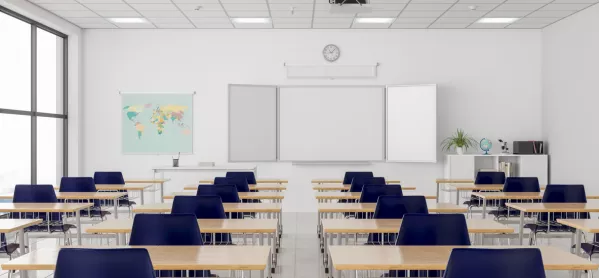- Home
- Schools linked to ‘large’ increase in Covid R number
Schools linked to ‘large’ increase in Covid R number

The reopening of schools was associated with a “large” increase in the R number, according to new research published in the Lancet.
The study, which looked at the spread of the virus in 131 countries, found that combining measures such as a public events ban, school closures and stay-at-home requirements is more effective in reducing coronavirus transmission than individual interventions.
Scientists looked at the effect of non-pharmaceutical interventions (NPIs) on the Covid-19 reproduction (R) number.
News: Schools have ‘limited role’ in spreading Covid
Revealed: SAGE warning over schools spreading Covid
Research: Opening schools risks double strength second Covid wave
R represents the average number of people each Covid-19 positive person goes on to infect. When the figure is above one, an outbreak can grow exponentially.
The team found that the least comprehensive package of measures - which include a ban on public events and gatherings of more than 10 people - would reduce R by 29 per cent after 28 days, while the most comprehensive package - similar to a lockdown - would lead to a 52 per cent reduction.
When looking at the measures individually, a ban on public events was associated with the greatest reduction in R, amounting to a 24 per cent reduction on day 28, the researchers said.
Meanwhile, the measures most strongly associated with an increase in R were lifting bans on gatherings of more than 10 people (25 per cent) and reopening of schools (24 per cent) after 28 days, they added.
The findings, published in The Lancet Infectious Diseases journal, are based on a modelling analysis, taking into account NPIs across 131 countries.
Study author Harish Nair, a professor at the University of Edinburgh, said: “We found that combining different measures showed the greatest effect on reducing the transmission of Covid-19.
“As we experience a resurgence of the virus, policymakers will need to consider combinations of measures to reduce the R number.
“Our study can inform decisions on which measures to introduce or lift, and when to expect to see their effects, but this will also depend on the local context - the R number at any given time, the local healthcare capacity, and the social and economic impact of measures.”
Although reopening schools was associated with a large increase in R, the researchers said they were unable to account for different precautions some countries implemented, such as limiting class sizes, distancing measures, routine deep cleaning, personal handwashing, face masks, and temperature checks on arrival.
Professor Nair said: “We found an increase in R after reopening schools but it is not clear whether the increase is attributable to specific age groups, where there may be substantial differences in adherence to social distancing measures within and outside classrooms.
“Furthermore, more data are needed to understand the specific role of schools in increased Sars-CoV-2 transmission through robust contact tracing.”
The study authors also did a secondary analysis using Google mobility data, modelling the total visits to workplaces and the total time spent in residential areas.
Results indicated that people took some time to adapt their behaviour to comply with workplace closures and stay-at-home requirements, which was similar to the delay between the measures and the effects seen on R - around one to three weeks.
The authors suggest the delay was possibly due to the population taking time to modify their behaviour to adhere to measures.
The researchers also said that some of the greatest effects on R were seen for measures that were more easily implementable by law, like school reopening and introduction of a public events ban.
They suggest this may have been because their effects were more immediate and compliance was easier to ensure.
Register with Tes and you can read two free articles every month plus you'll have access to our range of award-winning newsletters.
Keep reading with our special offer!
You’ve reached your limit of free articles this month.
- Unlimited access to all Tes magazine content
- Save your favourite articles and gift them to your colleagues
- Exclusive subscriber-only stories
- Over 200,000 archived articles
- Unlimited access to all Tes magazine content
- Save your favourite articles and gift them to your colleagues
- Exclusive subscriber-only stories
- Over 200,000 archived articles



